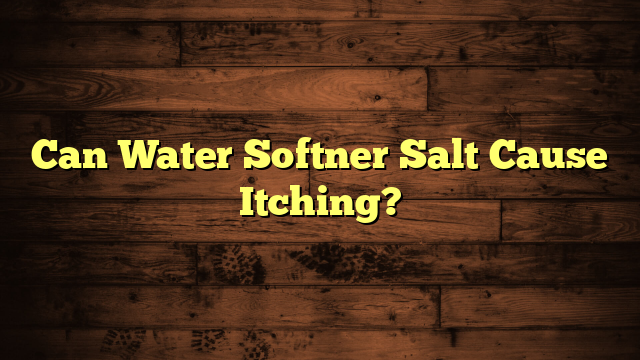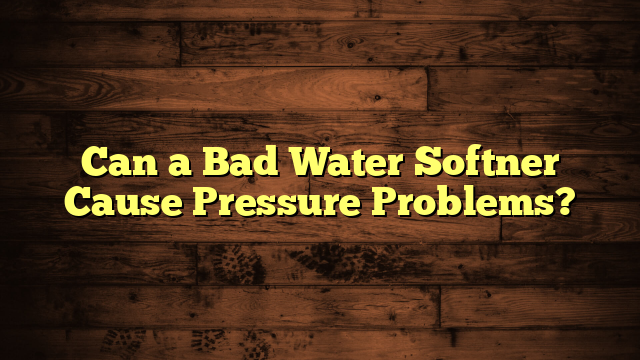How Much to Have a Water Softner Installed?
Installing a water softener can feel like you're about to buy a luxury car, but the reality is often more manageable. You might be surprised at the range of costs involved, from the unit itself to installation fees that can fluctuate based on various factors. Understanding these elements can help you make an informed decision, especially since your choice could save you money in the long run. What specific factors should you consider to guarantee you're getting the best value for your investment?
Key Takeaways
- Water softener prices range from $400 to $2,500, depending on type and efficiency.
- Installation fees typically range from $200 to $600, varying by location and complexity.
- Additional plumbing expenses may arise from permits and necessary modifications during installation.
- Ongoing maintenance costs include salt, filter replacements, and annual check-ups, totaling around $100 to $400 per year.
- Obtaining multiple quotes can help ensure fair pricing and quality service for installation.
Understanding Water Softener Types
When you're evaluating a water softener, it's important to understand the different types available.
Two of the most common options are salt-based systems and magnetic softeners. Salt-based systems work by exchanging calcium and magnesium ions in your water for sodium ions, effectively reducing hardness. These systems are highly effective and widely used, but they do require regular maintenance, including salt refills.
On the other hand, magnetic softeners operate differently. They use magnetic fields to alter the properties of hard water minerals, preventing them from forming scale. While they're easier to maintain and don't require salt, their effectiveness can vary depending on water chemistry.
Each type has its advantages and disadvantages, so it's vital to evaluate factors like water hardness levels, maintenance preferences, and environmental concerns.
Initial Purchase Costs
The initial purchase cost of a water softener can considerably impact your decision-making process. When you start exploring initial purchase options, you'll find a wide range of prices, typically between $400 and $2,500, depending on the type and capacity you choose.
It's important to take into account the features that matter most to you, such as efficiency, size, and the technology used.
To make an informed choice, conduct a thorough price comparison among different brands and models. Some systems may have higher upfront costs but offer long-term savings on your water bills and maintenance.
Furthermore, don't forget to factor in warranties and customer support, as these can add value to your purchase.
It's also wise to look for reviews and testimonials from other users to gauge satisfaction levels. If you're weighing a salt-based system versus a salt-free alternative, understanding the differences in initial costs, functionality, and ongoing maintenance can help you choose wisely.
Installation Fees
Installation fees can vary greatly based on factors like the complexity of the setup and your location. When you're considering a water softener, it's crucial to understand that labor rates differ widely across installation locations.
For instance, urban areas may have higher rates due to increased demand and living costs, while rural regions might offer more competitive pricing.
Typically, you can expect to pay anywhere from $200 to $600 for installation. If your home requires additional plumbing work or modifications to accommodate the system, costs can rise considerably.
It's wise to get multiple quotes from local professionals to verify you're getting a fair deal.
Moreover, some companies might include a warranty or maintenance plan in their installation fees, which can add value to your investment. Don't forget to ask about these options.
Ultimately, understanding the installation fees and the factors that influence them will help you budget effectively and choose the right service for your needs.
Additional Equipment Expenses
When you're budgeting for a water softener, don't forget to take into account additional equipment expenses.
This includes potential plumbing costs and maintenance supplies that can add up over time.
Knowing these extra expenses helps you make a more informed decision about your overall investment.
Additional Plumbing Costs
Installing a water softener often comes with additional plumbing costs that can catch homeowners off guard. First, you might need plumbing permits, which vary by location and can add to your total expenses.
Before you plunge in, check with your local authorities to confirm you're compliant with any regulations and avoid costly fines later on.
Unexpected repairs can also arise during installation, especially if your existing plumbing is older or in poor condition. For instance, corroded pipes or faulty valves may need replacing, which can lead to additional charges.
It's wise to consult a professional plumber who can assess your current plumbing system beforehand. This way, you can anticipate potential issues, budget accordingly, and minimize surprises.
Additionally, don't forget about the cost of any necessary fittings or modifications to your plumbing system, as these expenses can add up quickly.
Being prepared for these extra costs can help you maintain control over your budget and guarantee a smoother installation process. By understanding these potential additional plumbing costs, you'll be better equipped to make informed decisions about your water softener installation.
Maintenance Supplies Expenses
After considering the potential plumbing costs, it's important to think about ongoing maintenance supplies for your water softener.
These supplies are essential for keeping your system running efficiently and can add to your overall expenses. By keeping track of these costs, you can guarantee that you're prepared for what lies ahead.
Here's a list of common maintenance supplies you might need:
- Salt Pellets: Required for the ion exchange process.
- Cleaning Solutions: To maintain the resin tank and prevent buildup.
- Pre-Filter Cartridges: Essential for filtering out sediment and protecting your system.
- Test Strips: Useful for checking water hardness and guaranteeing peak performance.
- Replacement Parts: Such as O-rings or valves, to fix any wear and tear.
To avoid surprises, it's wise to include these maintenance supplies in your expense tracking.
Regularly budgeting for these items will help you manage your finances effectively, guaranteeing your water softener functions smoothly without unexpected costs.
Ongoing Maintenance Costs
Maintaining a water softener involves ongoing costs that can impact your budget. You'll need to factor in salt usage and maintenance frequency to keep your system running efficiently. Typically, you'll add salt every 4 to 6 weeks, depending on your water hardness and usage. Here's a breakdown of common ongoing maintenance costs:
| Expense Type | Frequency | Estimated Cost |
|---|---|---|
| Salt | Every 4-6 weeks | $5 – $15 per bag |
| Filter Replacement | Every 6-12 months | $10 – $50 |
| Professional Check-Up | Annually | $75 – $150 |
| Resin Replacement | Every 5-10 years | $300 – $600 |
| Water Testing | Annually | $20 – $50 |
As you can see, your ongoing costs can vary based on your water quality and family size. Regularly monitoring your system can help minimize unexpected expenses. Overall, budgeting for these ongoing maintenance costs will guarantee that your water softener operates smoothly and effectively, keeping your water quality up to par.
DIY vs. Professional Installation
Deciding between DIY and professional installation of a water softener can greatly affect your overall experience and costs. While taking the DIY route may seem tempting, it's crucial to weigh the pros and cons carefully.
DIY Advantages:
- Cost Savings: You'll save money on labor costs.
- Flexibility: You can work at your own pace without scheduling conflicts.
- Skill Development: It's an opportunity to learn new home improvement skills.
- Customization: You can tailor the installation based on your preferences.
- Satisfaction: Completing the project yourself can be rewarding.
On the other hand, professional installation comes with certain drawbacks.
Hiring an expert often means higher upfront costs and potential scheduling delays. Furthermore, if something goes wrong, you might feel less in control of the situation.
Ultimately, whether you choose DIY or professional installation hinges on your confidence, skill level, and willingness to tackle challenges.
If you're unsure about your plumbing skills or simply want peace of mind, hiring a pro might be worth the investment.
However, if you're handy and up for a challenge, a DIY installation could be a fulfilling project.
Long-Term Savings Considerations
How can investing in a water softener lead to long-term savings? You might not realize it, but a water softener can greatly reduce your expenses over time. By preventing scale buildup in your plumbing and appliances, you'll avoid costly repairs and replacements. Plus, softened water improves the efficiency of your appliances, leading to lower energy bills.
Here's a quick look at the long-term benefits and cost savings of owning a water softener:
| Benefit | Cost Savings | Timeframe |
|---|---|---|
| Increased appliance lifespan | Reduced repair/replacement costs | Ongoing |
| Lower energy bills | More efficient water heater | Monthly |
| Reduced soap usage | Less detergent needed | Monthly |
| Less scale buildup | Fewer plumbing issues | Long-term |
| Improved skin and hair health | Potential health savings | Ongoing |
Factors Affecting Total Cost
When you're considering the total cost of installing a water softener, several factors come into play.
The type of water softener you choose can greatly impact your budget, as different models have varying price points and features.
Furthermore, the complexity of the installation process can lead to extra costs, so it's crucial to understand these elements before making your decision.
Type of Water Softener
The type of water softener you choose plays a significant role in determining the overall installation cost. Various options are available, and each comes with its own price tag based on features and technology. Understanding these differences can help you make an informed decision that fits your budget.
Here are some common types of water softeners to take into account:
- Salt-Based Systems: These are the most traditional and effective, but they can be pricier upfront and require regular salt replenishment.
- Magnetic Softeners: These systems are often marketed as low-maintenance options, but their effectiveness can vary.
- Dual Tank Units: Ideal for larger households, they allow for continuous soft water but come at a higher cost.
- Portable Systems: Great for renters or those needing temporary solutions, these are generally less expensive but limited in capacity.
- Whole House Solutions: These all-encompassing systems treat all water in your home, guaranteeing you benefit from soft water everywhere.
Additionally, if you're contemplating reverse osmosis for drinking water, remember that it's a separate investment and not primarily a softening solution.
Choose wisely to guarantee you get the best value!
Installation Complexity Factors
Choosing the right type of water softener is just the first step in understanding the overall costs involved. When it comes to installation, several factors can greatly impact your total expenses. A complexity assessment will help you identify specific installation requirements based on your home's plumbing setup, the type of softener chosen, and any necessary modifications.
Here's a breakdown of some key factors to evaluate:
| Factor | Description | Cost Impact |
|---|---|---|
| Plumbing Configuration | Existing pipe layout and access | Higher if complex |
| Electrical Needs | Power supply requirements | Additional costs |
| Space Constraints | Location of installation | Possible extra |
Understanding these complexity factors can help you better prepare for the installation. If your plumbing is outdated or requires considerable modifications, expect to pay more. On the other hand, a straightforward setup might keep expenses low. Always consult with a professional to get an accurate estimate tailored to your specific situation. Taking the time to assess these elements can save you money and facilitate a smoother installation process.
Frequently Asked Questions
How Long Does a Water Softener Typically Last?
A water softener typically lasts 10 to 15 years. To maximize its lifespan, you should follow regular maintenance tips, like cleaning the brine tank and checking the resin for ideal performance. Your softener will thank you!
Can I Install a Water Softener Myself if I'm Not Handy?
You can attempt a DIY installation of a water softener, but if you're not handy, it might be challenging. Follow clear installation tips, and consider seeking help for a smoother experience and better results.
Are There Any Health Risks Associated With Softened Water?
So, you think softened water's like sipping a fancy cocktail? Well, it's mostly sodium, and if you've got health implications, like high blood pressure, you might want to rethink that invigorating drink. Stay cautious!
How Does Water Hardness Affect My Home Appliances?
Water hardness can lead to water scale buildup, which reduces appliance efficiency. You might notice your dishwasher or washing machine struggling to perform well, resulting in higher energy costs and more frequent repairs.
Will a Water Softener Improve My Water's Taste or Smell?
You might think your water's fine, but wait until you taste the improvement! A water softener can enhance flavor and provide odor reduction, giving you rejuvenating water that's pleasant to drink. You won't regret it!
Conclusion
In summary, investing in a water softener can transform your home's water quality, providing both comfort and savings in the long run. While the initial costs may seem overwhelming, think of the benefits: softer skin, cleaner dishes, and prolonged appliance life. By weighing the type, installation, and maintenance costs against these advantages, you can make an informed choice. So, whether you opt for professional help or a DIY approach, you're on the path to better water.







